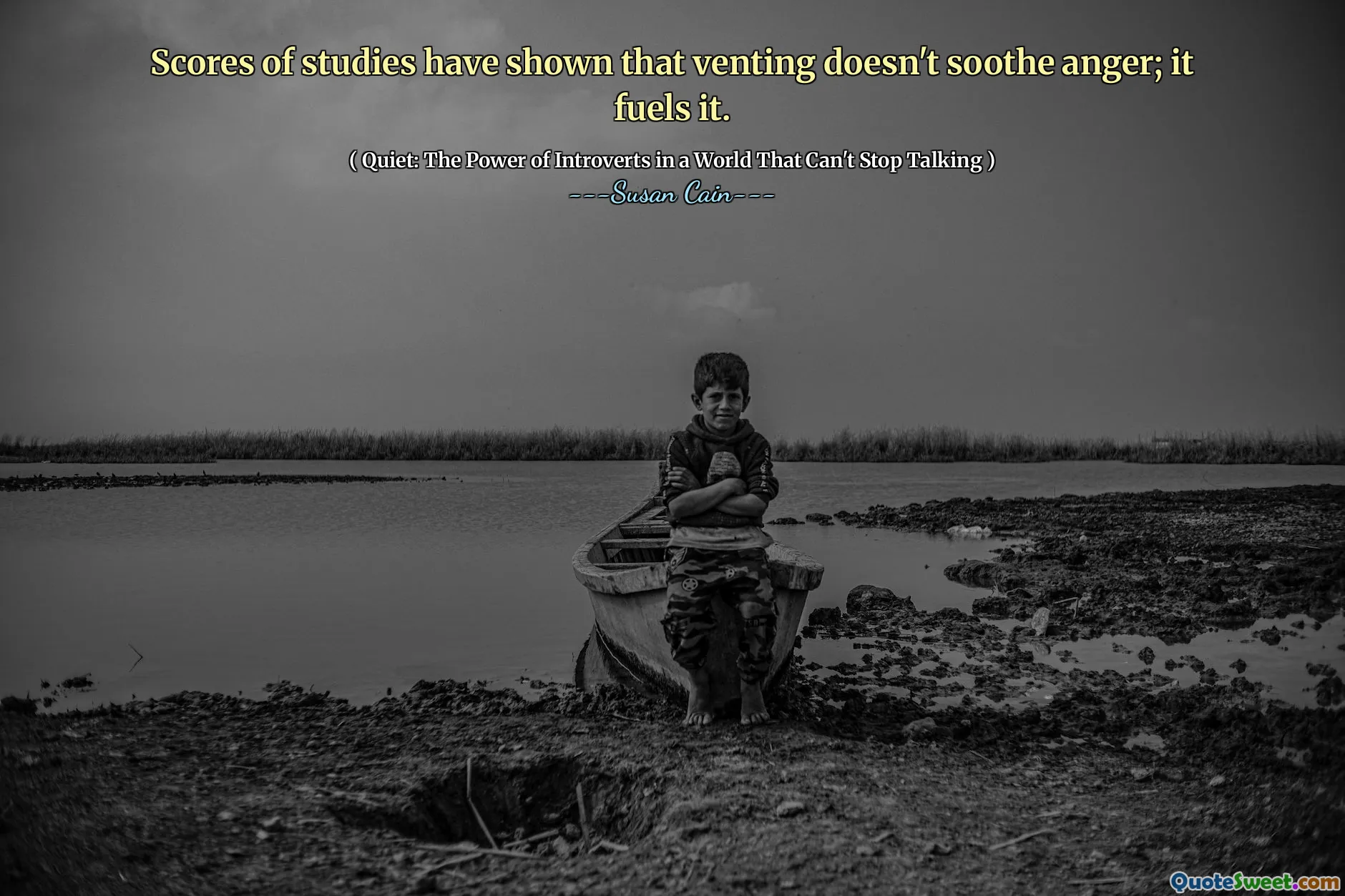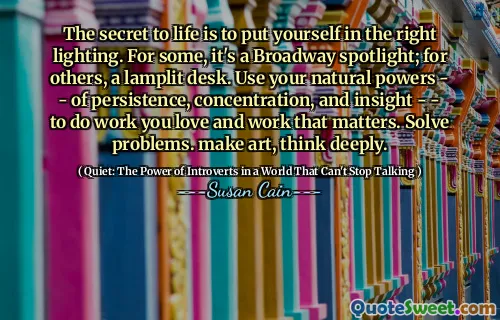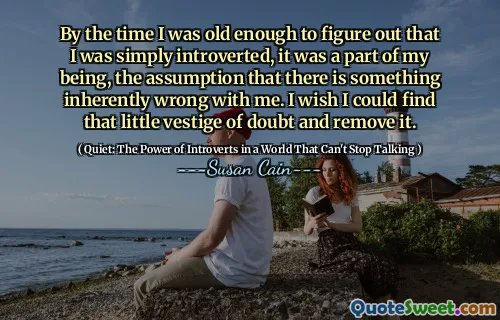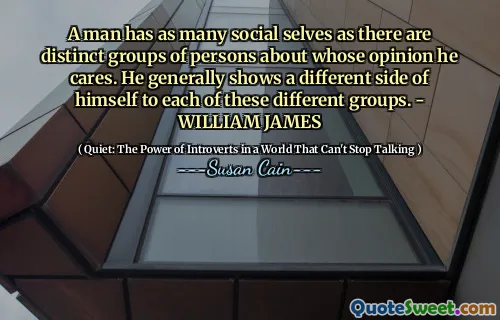
Scores of studies have shown that venting doesn't soothe anger; it fuels it.
The quote highlights a common misconception about emotional expression, particularly the idea that venting one's anger or frustration provides immediate relief. In reality, holding back and allowing emotions to dissipate naturally, or channeling them into constructive activities, often proves more effective than simply releasing them through venting. This concept is especially relevant in our culture, which sometimes encourages people to 'get things off their chest,' assuming that expressing anger openly will lead to emotional catharsis. However, research indicates that such venting can have the opposite effect—reinforcing feelings of anger, fostering resentment, and escalating conflicts. For individuals who tend to process their emotions internally, this insight can be empowering, as it encourages healthier coping strategies like mindfulness, reflection, or creative outlets. It also emphasizes patience and self-awareness, important components of emotional intelligence, which help us understand the difference between constructive expression and destructive reactions. Recognizing that anger doesn't necessarily diminish through venting allows us to cultivate more thoughtful responses, ultimately fostering better relationships and personal well-being. As noted in Susan Cain's work, understanding ourselves and learning to manage emotions effectively, especially in a world that often values assertiveness over introspection, can lead to greater inner peace. This perspective urges a shift from impulsive reactions towards mindful regulation of emotions, groundbreaking for anyone seeking emotional resilience and deeper understanding of themselves.











